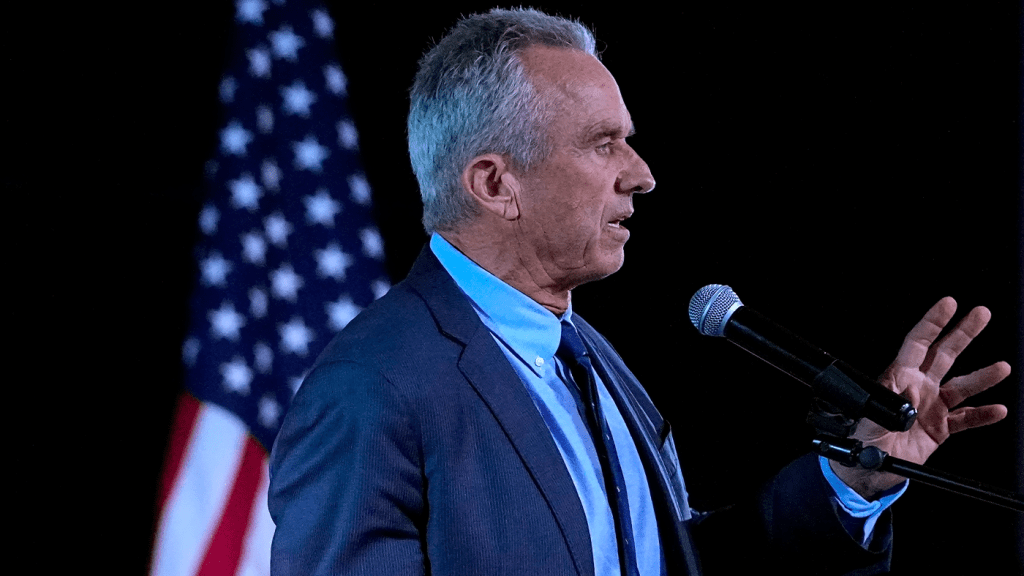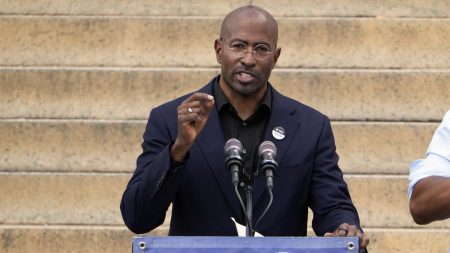Independent presidential candidate Robert F. Kennedy, Jr. backed lawsuits supported by Republicans against the White House for social media censorship on Tuesday. He said President Biden also tried to censor his social media posts.
The Supreme Court heard oral arguments for two social media cases Tuesday, which claim the Biden White House illegally pressured social media companies to censor accounts spreading misinformation about COVID-19.
“I don’t think the government should be involved,” Kennedy told NewsNation’s Chris Cuomo on Tuesday. He added that social media sites are free to have rules, but once the government gets involved and the First Amendment is involved, things get out of hand.
He also said, “Social media sites should be able to regulate their sites to remove harmful content. Once the government tells them what to do, then we have a First Amendment problem.”
Kennedy also mentioned his own lawsuit against Biden and the White House over censorship.
The candidate’s social media accounts were restricted in January 2021 after he posted misinformation that baseball legend Hank Aaron died from complications of the COVID vaccine, which is not true, according to medical experts.
Kennedy claimed that the White House instructed social media sites to restrict his accounts, which they did. He won an injunction on the case last month, but it was stayed in order to wait for the Supreme Court cases.
The two cases heard by the Supreme Court were brought by the states of Louisiana and Missouri. Justices appeared cautious of the states’ arguments in oral hearings Tuesday, with both liberal and conservative members questioning specifics of the states’ arguments.
“My biggest concern is that your view has the First Amendment hamstringing the government in significant ways in the most important time periods,” Justice Ketanji Brown Jackson told Louisiana Solicitor General Benjamin Aguiñaga in arguments.
A Louisiana-based federal judge initially barred Biden administration officials from communicating with social media companies about “the removal, deletion, suppression, or reduction” of content containing “protected free speech” last July.
A three-judge panel on the 5th U.S. Circuit Court of Appeals narrowed the original order in September but agreed that administration officials likely violated the First Amendment in asking social media companies to take down specific content.
It’s uncertain how the Supreme Court will ultimately decide on the issue. The lower court rulings remain paused during the appeal.









